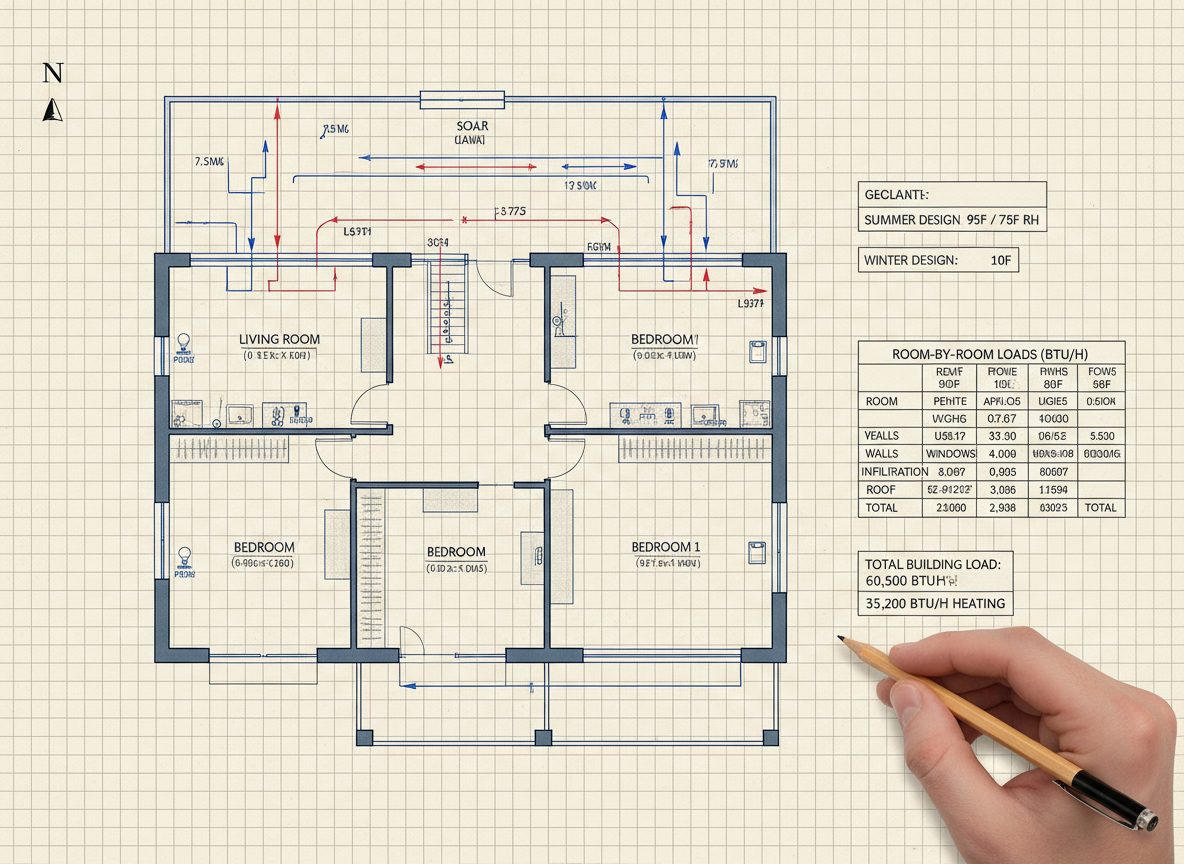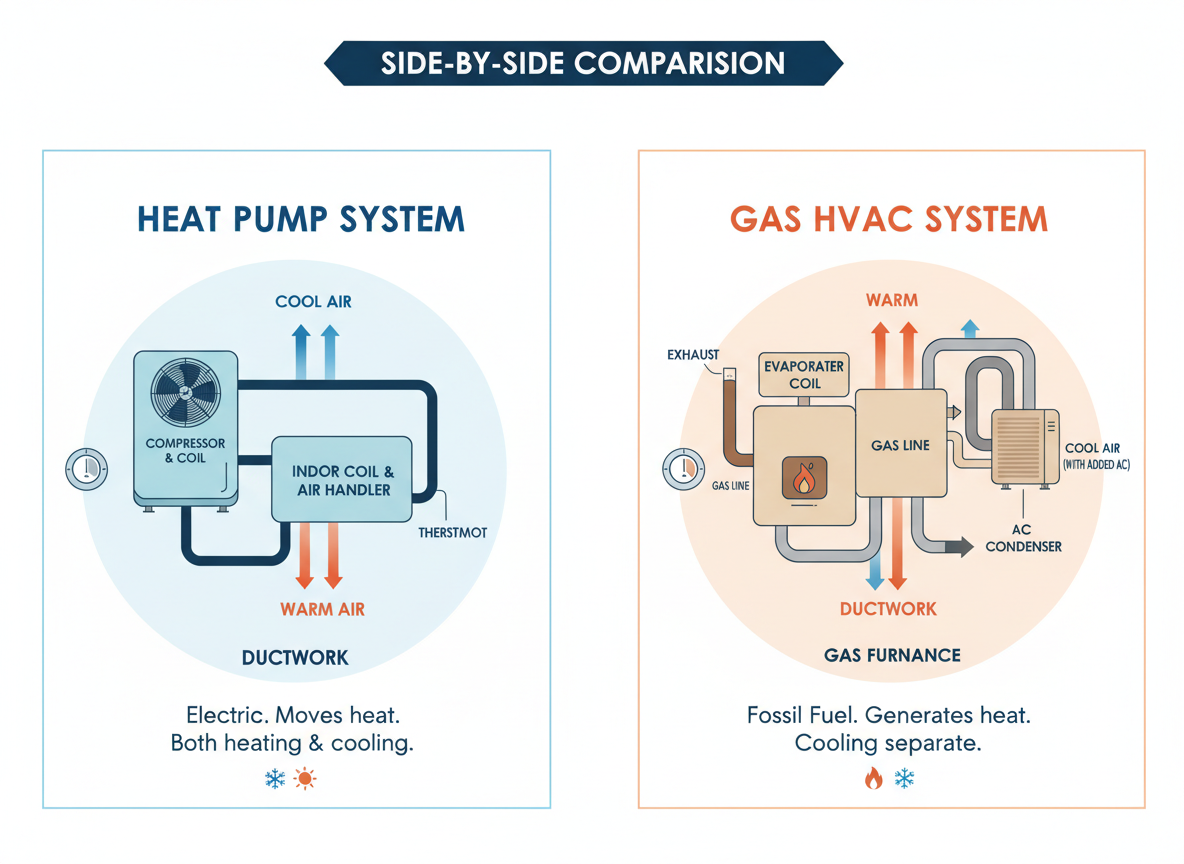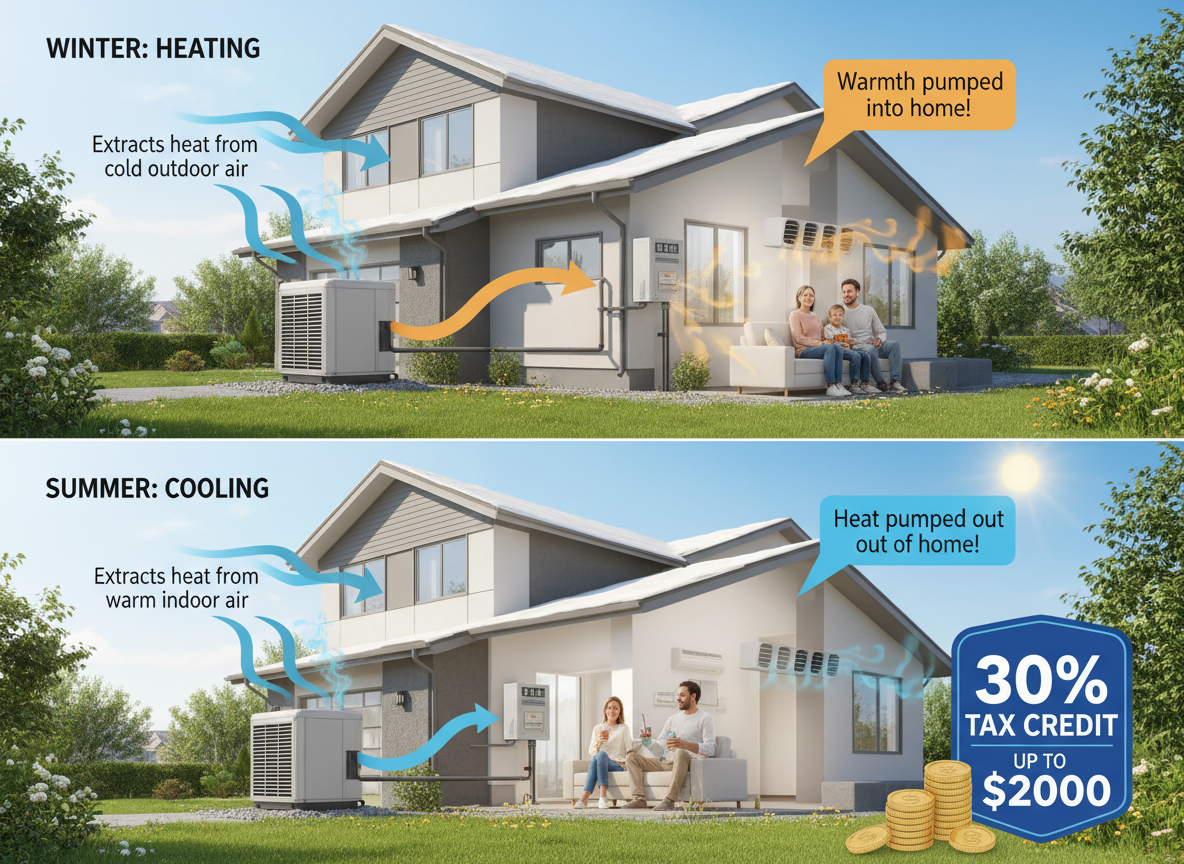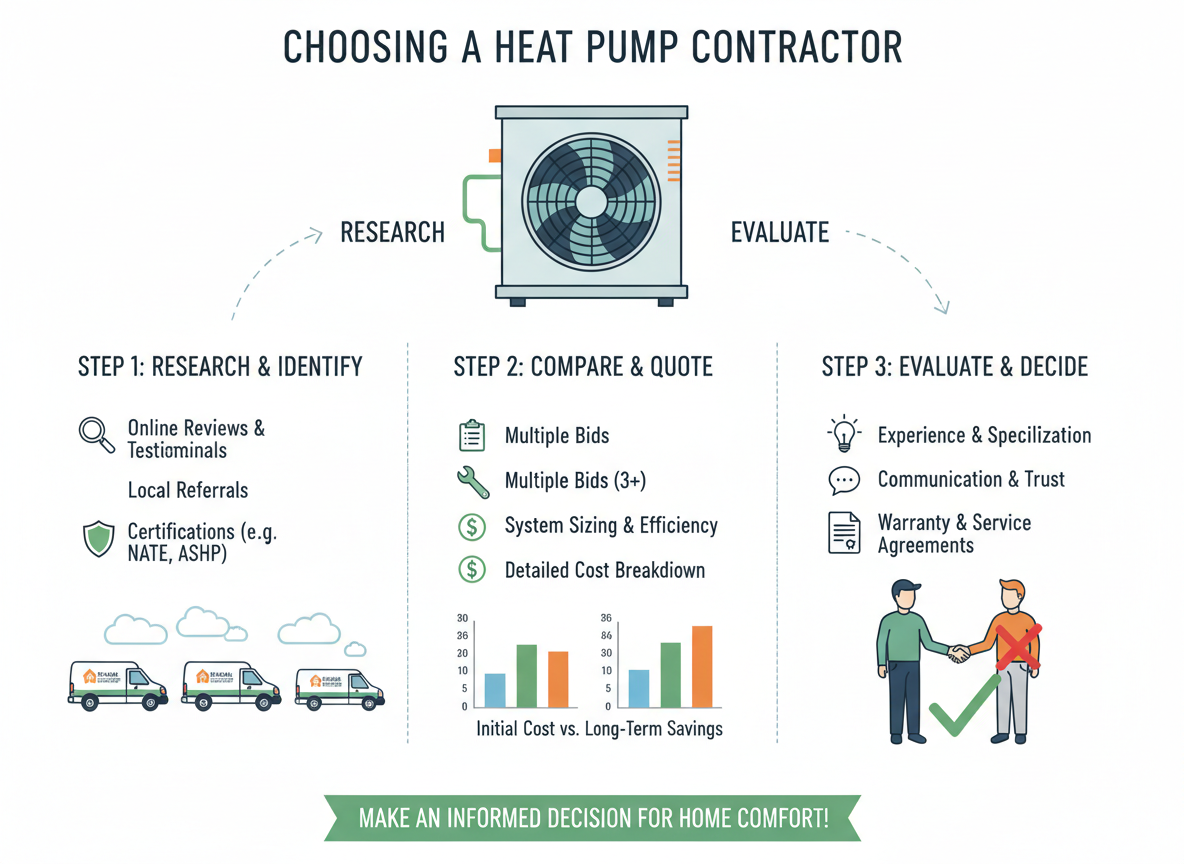
As temperatures drop, ensuring your home remains warm and comfortable becomes a top priority. Your furnace, the workhorse of your heating system, plays a pivotal role in maintaining a cozy environment. Like with any appliance, furnaces are subject to wear and tear over time. When problems arise, homeowners are often faced with a critical decision: should you repair or replace your furnace?
Making this choice depends on several factors, including the cost of repairs, the furnace's age, efficiency, and your long-term goals for home comfort. This article will explore these factors in detail, providing you with a clear framework to make an informed decision on furnace replacement vs repair.
1. Assess the Age of Your Furnace
The average lifespan of a furnace ranges from 15 to 20 years, depending on the type, maintenance, and usage. Here's how age influences the repair vs. replacement debate:
• Under 10 Years: Furnaces in this range are generally worth repairing, especially if the issue is minor and the unit is still under warranty. Modern units are built to last and can often be restored to full function with proper repairs.
• 10 to 15 Years: Repairs might still be viable, but you should weigh the costs carefully. If your furnace requires frequent repairs or exhibits declining efficiency, replacement may be a more cost-effective choice in the long run.
• Over 15 Years: At this point, replacing your furnace is often the better option. Older furnaces are less efficient and may struggle to keep up with heating demands, leading to higher energy bills.
2. Evaluate Repair Costs vs. Replacement Costs
When your furnace breaks down, the cost of repairs is a major factor in your decision-making process. For minor issues, such as replacing a thermostat, cleaning the filters, or fixing a clogged duct, furnace repairs are usually inexpensive and worth the investment. However, when the repair costs begin to add up, it might be more cost-effective to replace the unit instead.
A common guideline used by HVAC professionals is the "repair or replace" rule: if the cost of repairs is more than 50% of the cost of replacing the furnace, you should consider replacement. For example, if your furnace is 10 years old and a repair is estimated at $1,500, but a new furnace costs $3,000, repairing the existing unit would likely be a waste of money. Instead, investing in a new furnace will give you a more reliable and efficient system.
If the cost of repairs exceeds 50% of the cost of a new furnace, replacement is likely the smarter choice. Here's why:
• High Repair Costs: Major component failures, such as a cracked heat exchanger or a malfunctioning blower motor, can cost thousands of dollars to fix. In such cases, investing in a new unit makes more sense than repeatedly patching an aging system.
• Recurring Repairs: If you're calling the technician frequently, those bills add up quickly. Replacing your furnace eliminates the uncertainty of future breakdowns and can save money in the long term.
3. Understand the Signs of a Failing Furnace
A malfunctioning furnace often gives warning signs before it completely fails. Here are some common indicators that your furnace needs attention:
• Age of the Furnace: Furnaces have an average lifespan of 15–20 years. If your furnace is older, it’s more likely to need replacement.
• Frequent Repairs: If you’ve had to call a technician multiple times over the past few years, it may be more cost-effective to invest in a new furnace.
• High Energy Bills: Rising energy costs without an increase in usage can indicate your furnace is losing efficiency.
• Uneven Heating: Cold spots in your home or uneven heating could be a sign of wear and tear on internal components.
• Noisy Operation: Banging, rattling, or squealing sounds can signal mechanical problems that might be costly to repair.
• Strange Odors: A burning smell or gas-like odors could indicate serious issues, such as cracked heat exchangers.
4. Energy Efficiency and Operating Costs
Energy efficiency is another important consideration when deciding furnace replacement vs repair. If your furnace is still running, but it’s old or inefficient, it might be costing you a significant amount in energy bills each month. Modern furnaces are designed to be much more energy-efficient than older models, and replacing an old unit with a newer, high-efficiency furnace can result in significant savings on your heating costs.
Furnaces are rated by their Annual Fuel Utilization Efficiency (AFUE) rating, which indicates how efficiently they convert fuel into heat. An older furnace may have an AFUE rating of 60-70%, meaning that a large portion of the energy used is wasted. Newer furnaces, on the other hand, can have an AFUE rating of 90% or higher, meaning they use less energy to produce the same amount of heat.
If you’re constantly facing high energy bills despite regular maintenance, it might be time to replace your furnace with a more energy-efficient model. Not only will this reduce your heating costs, but it will also have a positive environmental impact by reducing your carbon footprint.
5. Frequent Breakdowns or Repairs
If your furnace is frequently breaking down, requiring repairs every year or even several times a year, it could be a sign that it’s time for a replacement. While small repairs here and there are to be expected with any appliance, constant breakdowns and expensive repairs indicate that your furnace is nearing the end of its useful life.
Repeated repairs can add up quickly, and each breakdown may cause further damage to other components of the furnace. This can create a situation where you are constantly pouring money into a system that is no longer efficient, which ultimately becomes a poor investment. If your furnace has had multiple expensive repairs over the past few years, it might be more economical in the long run to invest in a new unit rather than continuing to patch up an aging furnace.
6. Safety Concerns with Aging Furnaces
As furnaces age, safety becomes a significant concern. A cracked heat exchanger is a particular concern, as it poses both a safety risk and a significant repair cost. If your heat exchanger is cracked, the furnace must be replaced because the heat exchanger is essential to the unit’s ability to safely heat the air. Cracks in the heat exchanger can allow dangerous carbon monoxide to leak into your home, posing a health hazard to you and your family.
• Carbon Monoxide Leaks: Older furnaces may develop cracks in the heat exchanger, allowing dangerous carbon monoxide to escape, which is colorless, odorless, and potentially fatal.
• Fire Hazards: Worn-out components or outdated safety mechanisms can increase the risk of fire or electrical malfunctions, posing a serious danger to your home.
• Compromised Air Quality: Aging furnaces may fail to properly ventilate or filter the air, leading to poor indoor air quality and circulation of harmful particles.
• Increased Risk of Breakdowns: As furnaces age, their components become more prone to failure, which can lead to unsafe operation or complete breakdowns.
• Safety Features Degrading: Older models may lack modern safety features like automatic shutoffs, increasing the likelihood of unsafe operation.
• Need for Regular Maintenance: While maintenance can help, the safety risks of an aging furnace increase over time, making replacement a more viable option as the furnace ages past 15 years.
7. How A New Furnace Improves Comfort
• Higher Energy Efficiency: Modern furnaces are designed with advanced technology that increases energy efficiency, often achieving AFUE (Annual Fuel Utilization Efficiency) ratings of 90% or higher, reducing energy consumption and lowering utility bills.
• Variable-Speed Blowers: Newer furnaces come with variable-speed blowers that adjust airflow according to heating needs, resulting in more consistent temperatures and quieter operation.
• Smart Thermostat Integration: Many new models are compatible with smart thermostats, allowing for remote control and programming, which optimizes comfort and efficiency.
• Zoned Heating Capabilities: New furnaces offer zoning systems that allow for different temperature settings in various rooms, leading to better energy use and individualized comfort.
• Enhanced Air Quality Features: Modern furnaces often include air filters or purifiers that reduce allergens and pollutants, improving indoor air quality for a healthier home environment.
• Quiet Operation: Advanced technology in new models reduces noise levels, making them much quieter than older furnaces, which can create a more peaceful home atmosphere.
• Eco-Friendly Options: New furnaces have more environmentally friendly features, including reduced emissions and eco-conscious refrigerants, supporting sustainability efforts.
• Durability and Longer Lifespan: With improvements in materials and construction, newer furnaces are built to last longer, providing better value over time and reducing the need for frequent repairs.
Choosing Between Repair and Replacement: Expert Insights
When deciding between repairing or replacing your furnace, expert insights can be invaluable in guiding your decision. HVAC professionals typically assess the condition of your furnace, factoring in its age, the frequency of repairs, and the severity of any issues. If your furnace is relatively new and the repairs are minor, repairing it may be the most cost-effective choice.
However, if your furnace is over 10-15 years old and requires significant repairs, experts often recommend furnace replacement, as frequent repairs can add up and lower efficiency over time. Technicians may also consider energy efficiency, suggesting replacement if an older unit is no longer performing optimally. Ultimately, consulting with an experienced technician can help you weigh the long-term costs and benefits, ensuring you make the best decision for your home’s comfort and safety. Whether you live in Sherman Oaks or Woodland Hills, we provide highly rated and top-quality HVAC services all over LA and the San Fernando Valley.
Final Thoughts: Making the Best Choice for Your Home
Making the best choice between repairing or replacing your furnace requires careful consideration of several factors. If your furnace is older, frequently needs repairs, or has safety concerns, replacement might be the most cost-effective and reliable long-term solution. On the other hand, if the furnace is relatively new and only needs minor repairs, fixing it could extend its life without significant expense.
Evaluating the energy efficiency of your current system versus newer models is another important consideration, as newer furnaces can offer significant savings on energy bills. Ultimately, the decision should balance immediate costs, long-term savings, safety, and comfort. Contact LA Heating & Air we can provide the expert guidance you need to make the best choice for your home and family.
Furnace Replacement vs Repair Related Posts:






















.png)














